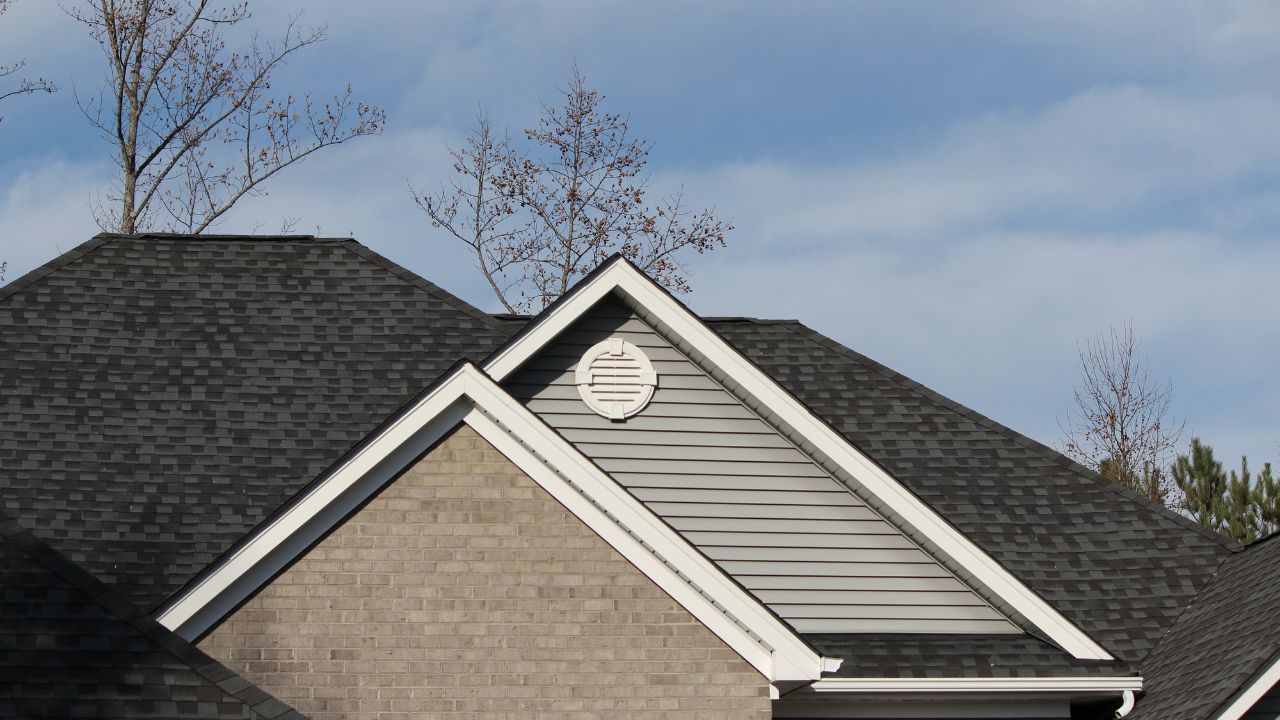
If you're building a new home or planning a roof replacement in San Diego County, the roof style you choose will shape the home’s look, strength, and energy performance for decades. Whether you go with a flat roof or a pitched roof, the decision should be based on more than just appearance.
Factors like roofing material, slope, water drainage, and your neighborhood’s local weather all play a role. Add in concerns like solar panel installations, maintenance needs, and roof replacement costs, and the choice gets even more important.
In areas like North County, where homes face both sun and coastal air, the right roof can improve energy efficiency, reduce roof leaks, and even increase home value. That’s why it’s smart to work with a local San Diego general contractor who understands regional needs and helps guide the right choice for your home.
A flat roof has a slope of 10 degrees or less. While they look level, they’re designed to drain water slowly through a built-in drainage system. Common in modern or mid-century style homes, flat roofs are also used in commercial buildings throughout Southern California.
Materials for flat roofs often include Modified Bitumen, membrane systems, or even Cool roof coatings that reflect heat and add protection. These options are known for being lightweight and easier to install in many cases.
Flat roofs are great for solar panels, green roofs, or rooftop decks, giving homeowners more usable space than a steep slope might allow.
Pitched roofs are what most people imagine when they think of traditional home roofing. These have a noticeable slope, often between 25 and 45 degrees. The steep angle helps water drain faster, reducing the chance of standing moisture and Water damage.
This style supports many roofing materials, including asphalt shingles, metal roofing, tile roofing, and concrete tiles. Sloped roofs are more common in neighborhoods with traditional architecture and often match the look of older or coastal homes with clay tile designs.
A major benefit of a flat roof is space. Homeowners can use the roof for extra outdoor living, which is great in warm places like Southern California. Flat roofs also make solar panel installations easier. Panels can be angled perfectly without needing mounting racks that raise the system and add wind resistance.
Flat roofs are easier and safer to walk on, making roof inspections, maintenance, or roofing projects simpler. And since there's less surface area to cover, labor costs may be lower.
Some Roofing Contractors offer fluid-applied systems or reflective membranes that keep flat roofs cooler, helping improve your home’s energy efficiency.
Despite these benefits, flat roofing comes with challenges. The low slope means water drainage is slower, which increases the chance of pooling. Over time, that can lead to roof leaks or added stress on the structure if not properly maintained.
Flat roofs typically don’t last as long as sloped systems unless high-quality materials and regular roof inspections are done. Homeowners need to clean drains, check seals, and reapply coatings more often than with pitched roofs.
Pitched roofs are known for strength, longevity, and better natural water drainage. In areas with rain—even light seasonal showers—pitched systems handle the runoff quickly. This reduces standing water and helps avoid mold or rot.
These roofs offer more attic space, which improves Attic Ventilation and allows for insulation upgrades. That means better control over indoor temperatures and improved energy efficiency.
Sloped roofs are also the go-to choice for clay tile, concrete tile, or metal roofing systems like standing seam designs. These materials last longer and perform better on a pitch, especially when following local building codes.
The structure and design of a pitched roof usually require more framing, which can raise roof installation costs. The surface area is larger, so material needs and disposal for old systems are greater.
Roofing projects on a steep slope also require more safety equipment, which adds time and money. Tasks like solar panel mounting or gutter maintenance are trickier and need trained professionals.
If your roof pitch is too steep or complex, even standard jobs like roof inspection or roof repairs may come with higher estimates than a flat layout.
In communities like North County, both flat and pitched styles are common. Mid-century homes, custom builds, and remodels often include flat roofs for a clean, modern look. These are paired with sleek roofing materials or Cool roof coatings that match minimalist design goals.
More traditional homes feature pitched roofs with clay tiles, asphalt shingles, or metal roof panels for durability and style. If you're in a neighborhood with historic guidelines or common roofing styles, it’s wise to consider what matches the area.
A local roofing company will guide you on both visual appeal and what passes inspection based on local building codes.
Flat and pitched roofs both require care, but they age differently.
A flat roof may need re-sealing every few years. Membranes can bubble, tear, or lift at the seams. Homeowners should schedule regular checks to catch issues before they become serious roof damage.
Pitched roofs, especially with high-quality materials like concrete tile or metal roofing, may only need occasional roof inspection and light repairs. Some systems come with 30–50-year warranties. That adds long-term value, even if the upfront roof installation cost is higher.
Choosing between a flat roof and a pitched roof depends on how you plan to use the space, your design style, and how much maintenance you’re ready to handle.
If you’re looking for a modern design, outdoor space, or easy access for solar panels, a flat roof makes sense. If you want low-maintenance durability, better drainage, and long-term performance, a pitched roof is a smart pick.
Either way, a licensed San Diego general contractor can help assess your goals, home structure, and roof type that makes the most sense.
At Precision General Contracting, we’ve helped homeowners across San Diego County choose the right roof for their homes, goals, and location. Whether you’re replacing an aging flat roof or planning a brand-new roof installation, our team provides expert advice, skilled workmanship, and reliable results.
We handle all types of roofing systems, from asphalt shingles to clay tile, metal roofing, and membrane coatings. We also follow every installation process step to make sure your home meets local building codes and stands strong for years to come.
Call us today for a free estimate or to discuss your next roofing project. Whether flat or pitched, we’ll help you make the right call—based on experience, not guesswork.
